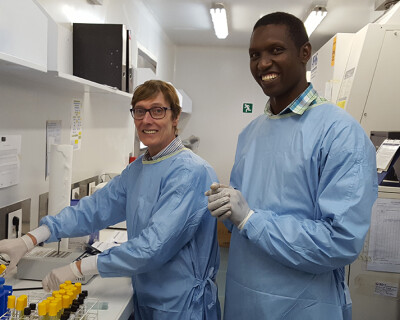“I did not want us to be left behind”
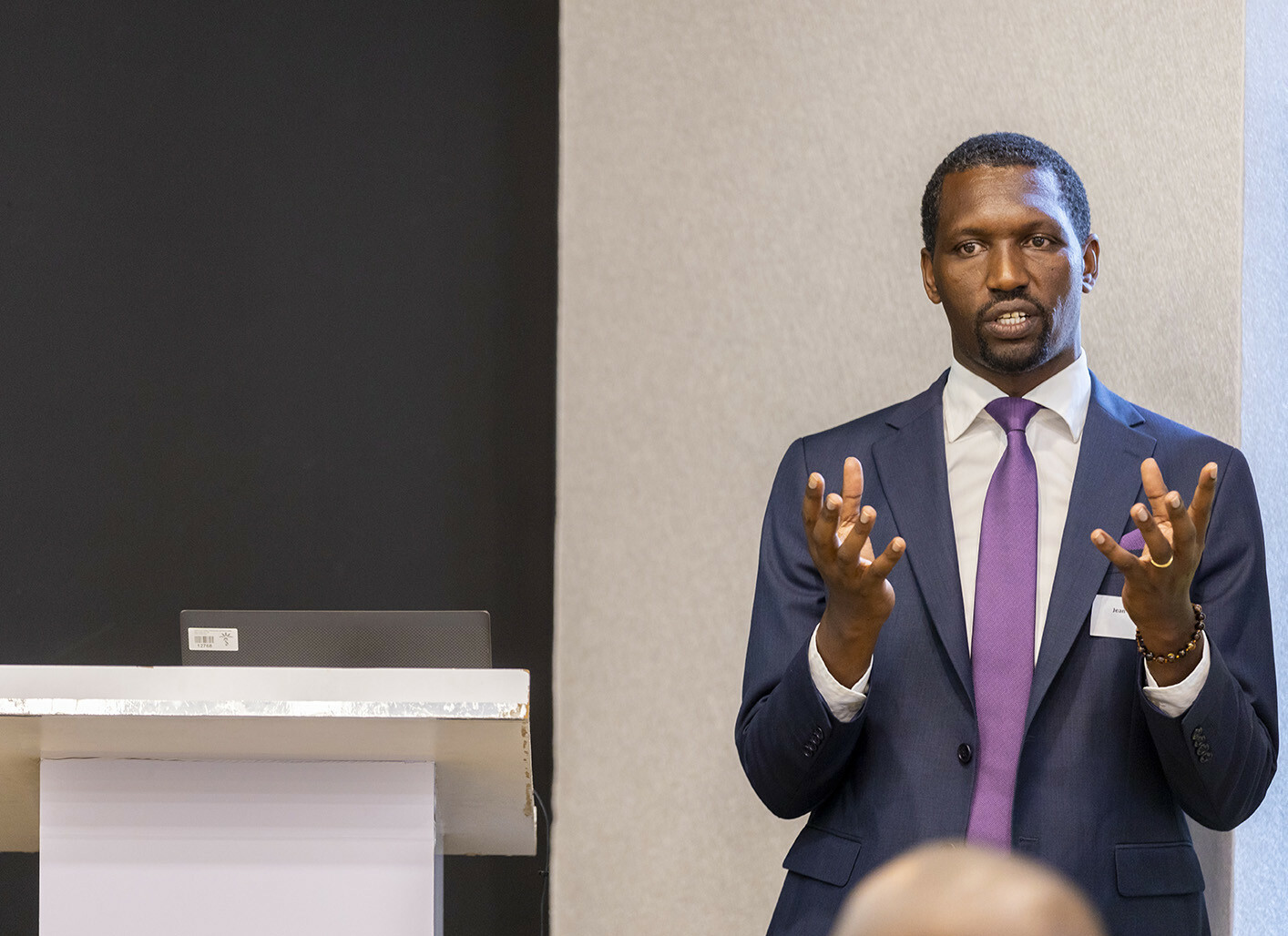
Jean-Claude Semuto Ngabonziza, is an ITM alumnus from Rwanda with an impressive track record. He identified a false resistance problem in tuberculosis patients during his PhD, which led to a change in the diagnostic algorithm of the Rwanda's National TB Programme. In 2022, with Claude's efforts alongside the Rwanda Biomedical Centre and the Ministry of Health, Rwanda joined the EDCTP Association. The association collaborates between Europe and sub-Saharan Africa to combat infectious diseases. Claude now serves as their technical advisor for Rwanda.
You are a biologist, a biomedical scientist. What inspired you to become a researcher?
When I was a child, I really loved maths and wanted to become a maths teacher. In secondary school I discovered that there are things beyond teaching – such as science and research! I became very interested in biology, and settled on biomedical sciences: the laboratory aspects of health care. Science means looking for something new, which is very motivating. During my undergraduate studies I started focusing on tuberculosis, which remained my main interest during my master’s studies in medical microbiology at the University of Nairobi, Kenya, and during my doctoral studies at ITM in Antwerp.
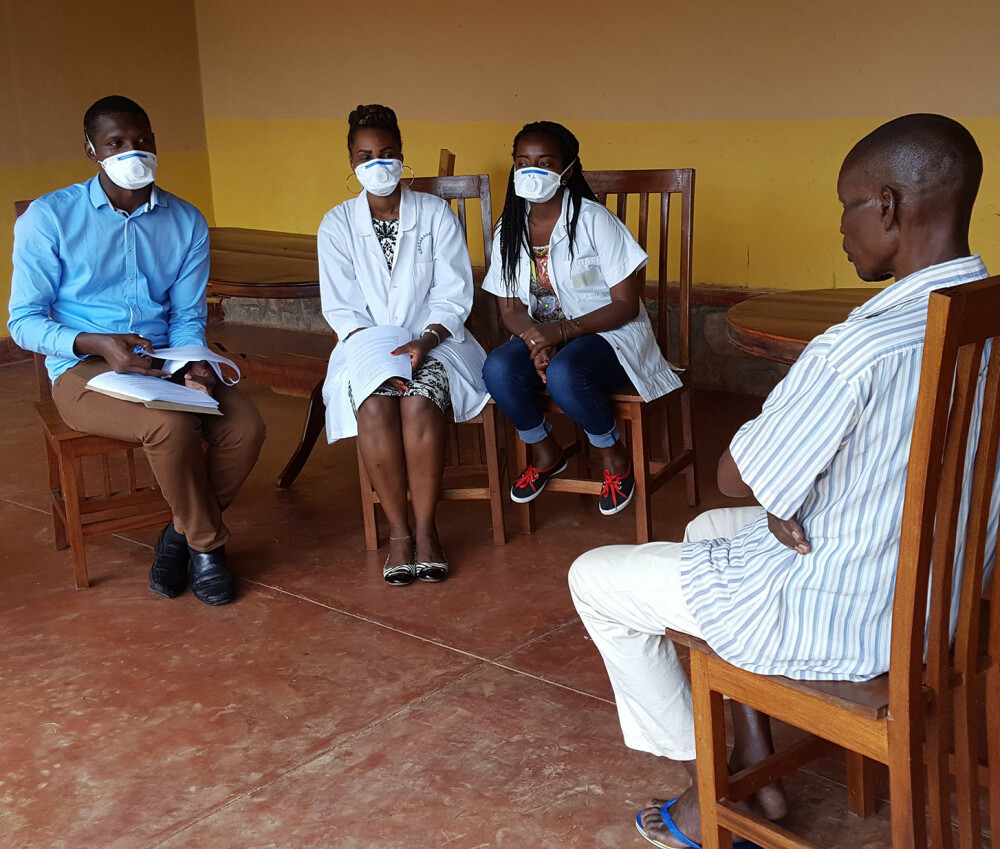
Why tuberculosis?
Tuberculosis, or TB for short, is the ninth leading cause of death worldwide. Over 25% of TB deaths occur in the African region. What’s more, TB has increasingly become resistant to treatment, and multidrug-resistant TB (MDR-TB) poses a major health threat worldwide. Tuberculosis is one of the many diseases associated with poverty: poor people are the most affected. My goal has been to alleviate their suffering.
Where did your ITM journey begin?
While working at the National TB Reference Laboratory in Rwanda, I attended a tuberculosis network meeting at ITM in 2014, because our focal person could not make it. This was my first time in Belgium and in Europe! It was very brief stay of three days, but it turned out to be pivotal for my future career. In 2016 I completed ITM’s Short Course in Clinical Research and Evidence-Based Medicine. The following year, encouraged by ITM’s “mycobacteria team”, I enrolled in an individual PhD track.
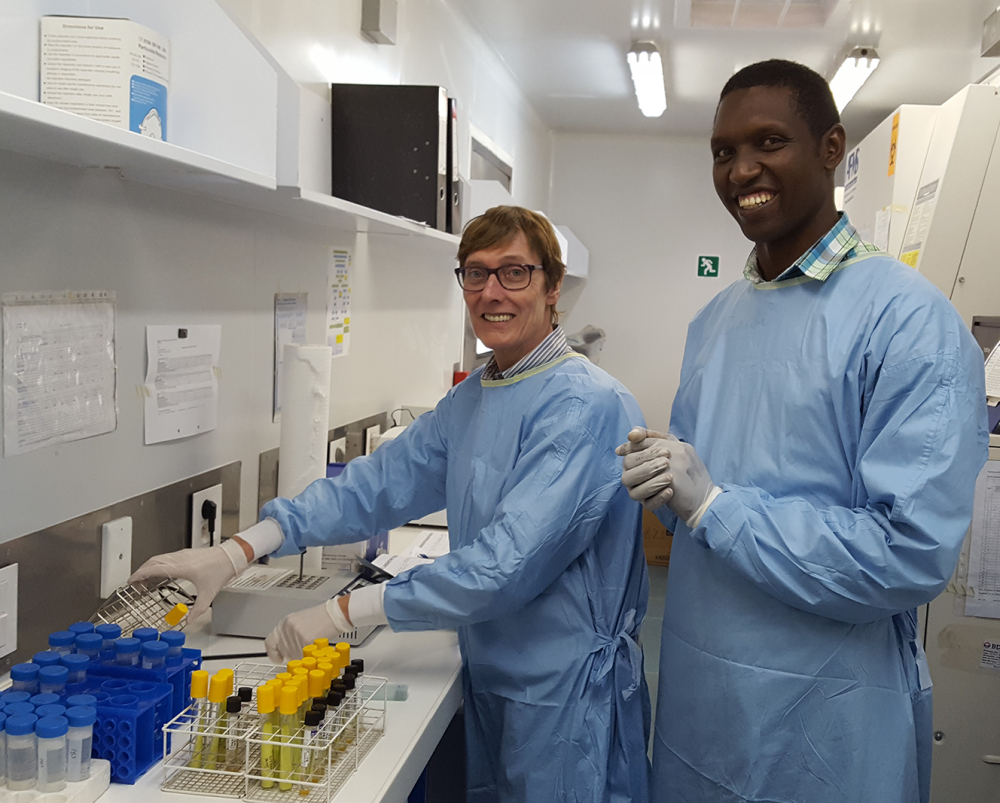
Your PhD focused on improving the diagnosis of rifampicin-resistant tuberculosis. But you had some unexpected discoveries during your research.
Indeed (laughs)! My PhD aimed to enhance the diagnosis of rifampicin-resistant TB. Rifampicin is the most powerful anti-TB drug currently available, but resistance to it impedes treatment and TB control. When we recruited patients with (rifampicin) resistant tuberculosis in our study, we found that those with a low bacterial load were erroneously diagnosed with drug-resistant TB. This was crucially important, because the treatment against non-resistant TB is a non-toxic, easier regime to follow. On the other hand, resistant TB requires a longer, second line treatment with more toxic and expensive injectable drugs. These need to be administered in hospitals, so patients required several months of hospitalisation and isolation. Our findings led to a critical adjustment in the National TB Programme's diagnostic algorithm, enabling patients to receive the correct treatment. The second unexpected discovery was the identification of a new TB bacterium strain: Lineage 8, which is resistant to key anti-TB drugs. It’s extremely rare and restricted to the African Great Lakes region.
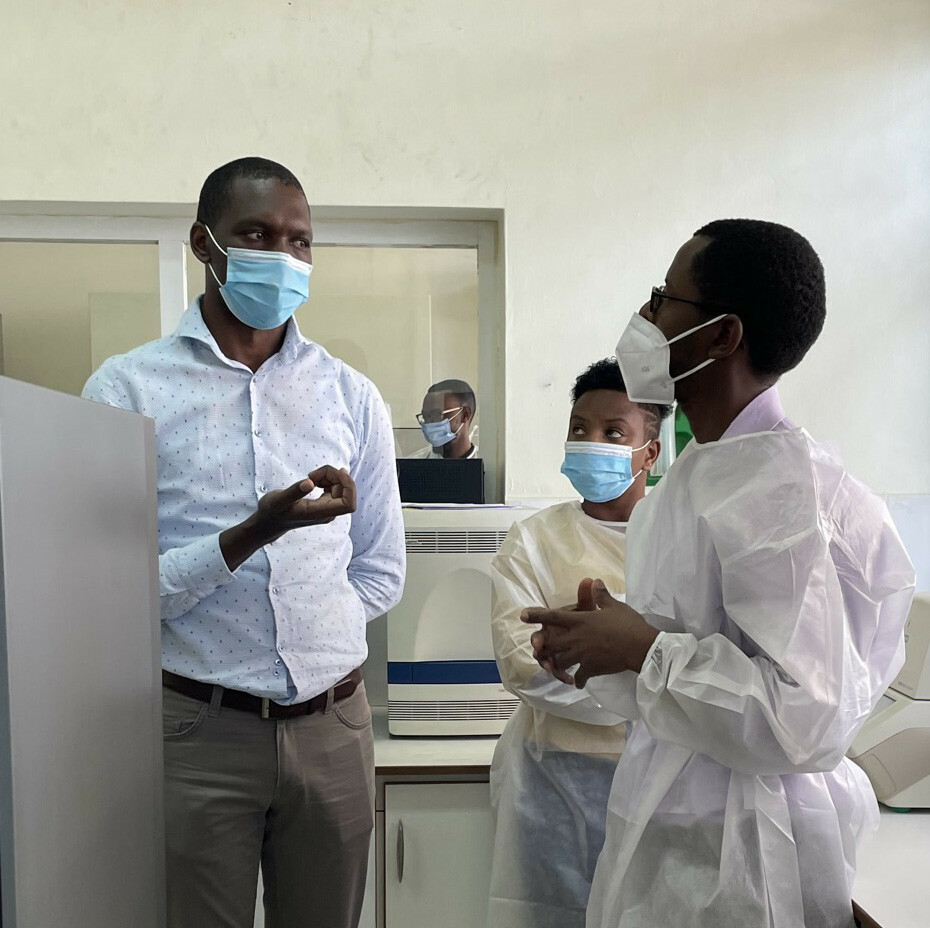
It sounds like you had a very busy four years!
I did! Of those (almost) four years I spent more than two and a half at Antwerp! Time just flew by. My supervisors and the student services were very flexible, and my family was incredibly supportive. My fourth child was born during my doctoral studies! I owe a lot to my wife and my family. My PhD was a team effort.
After your doctoral studies you returned to the Rwanda Biomedical Centre.
Yes. Since March 2022 I was Acting Division Manager of Research Innovation and Data Science at RBC. In July 2023, I was appointed as Health Scientific Innovation Analyst - a new, high level research position. I get to spend less and less time in the TB lab, but we’re reaching important milestones in terms of securing key partnerships, which will help our institution tremendously. First of these is becoming part of the fifth framework agreement of ITM and the Belgian Directorate-General for Development Cooperation and Humanitarian Aid (DGD). We are working together on tuberculosis, malaria, rational use of antibiotics, and health system strengthening. We’ve already secured a PhD position for malaria and have trained a large team on antimicrobial stewardship. Our TB lab is being strengthened; it is candidate to become Supranational Reference Laboratory – I have no doubt that we will achieve this status!
2022 had something else in store for you: Rwanda joined the EDCTP as member state. What does this mean for you and your country?
I think this has been among the greatest achievements of my life! (laughs) As I returned home after my PhD, I realised that it would be very beneficial for my institution and Rwanda in general to join the European and Developing Countries Clinical Trials Partnership (EDCTP). They aim to advance health technologies for poverty-related diseases and support research capacity building in Africa. However, the network and partnerships that come with the membership are just as valuable. I simply did not want our country to be left behind – I wanted us to be part of it. So, we prepared a concept note, briefed the Ministry of Health who briefed the cabinet, and the government gave green light. I am grateful that our government made this happen in such a short time, and very happy with our achievement. On top of this, we recently secured the opportunity to organise the next EDCTP forum in Kigali in 2025, a testament to Rwanda’s growing influence.
ITM and Rwanda
In 2022, Rwanda became a new partner country in our fifth framework agreement with the DGD. The two partner institutions are the Rwanda Biomedical Centre (RBC), Rwanda’s central health implementation agency, and the University of Rwanda. The capacity sharing programme aims to strengthen research and services in the fields of tuberculosis, malaria, helminthic infections, proper use of antibiotics, health system strengthening, vaccine development and roll-out.
Spread the word! Share this story on
